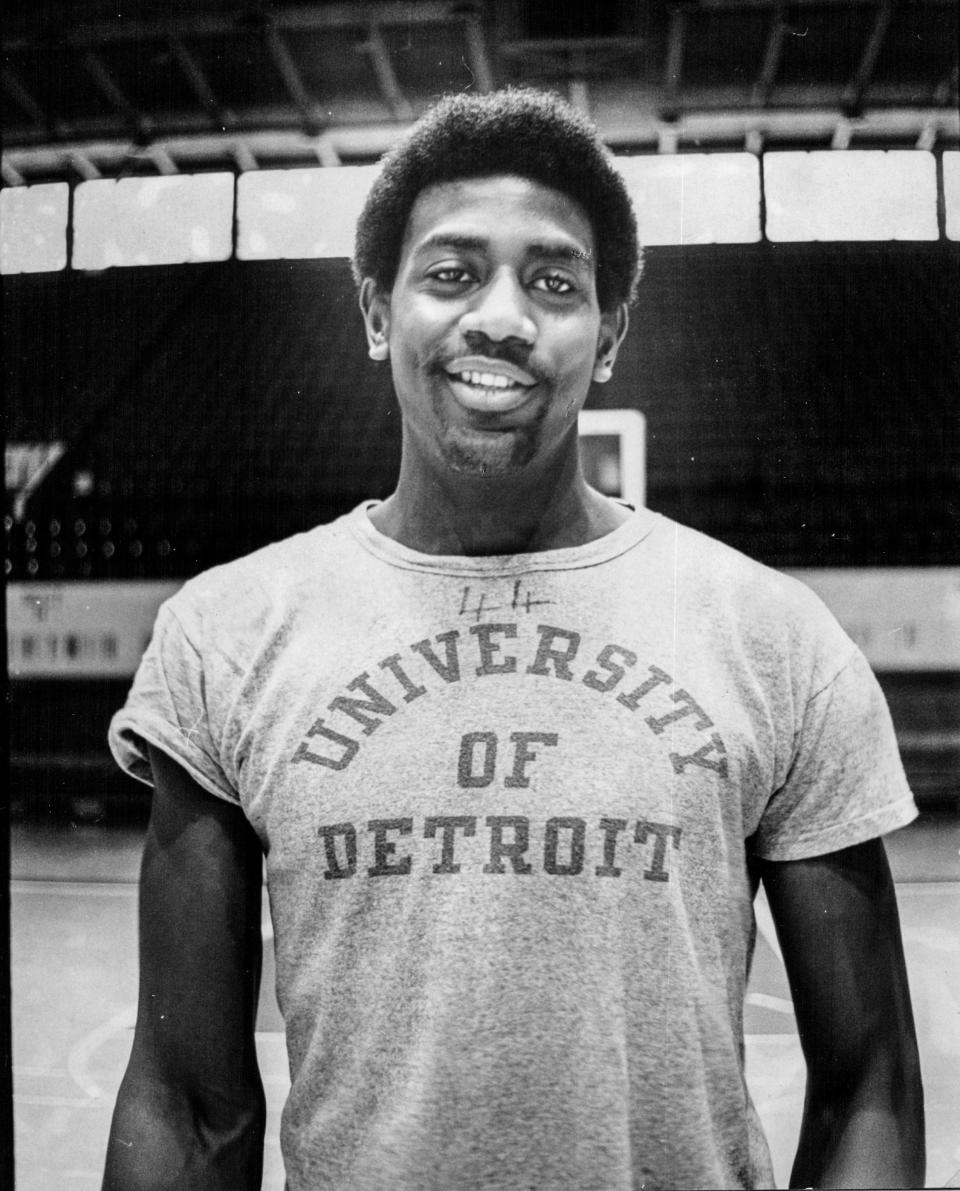Former NBA great Spencer Haywood, in helping ravaged hometown, is the anti-Brett Favre
Two sons of Mississippi: one Black and the other white. One, Spencer Haywood, was born in Silver City in 1949, and by the time he was 13, became the main bread winner in his family by picking cotton. He'd pick up to 200 pieces for $4 a day.
Mississippi, then and now, would treat its Black citizens as horribly as any place in the nation, but nonetheless Silver City...it was home for Haywood. He lives in Las Vegas now but Silver City will always be home. Days after a horrific tornado almost destroyed the town, Haywood is using his name as an NBA Hall of Famer, Olympic gold medalist and legal trailblazer to help the citizens of Silver City recover.

Late last month President Joe Biden declared a major disaster for the state of Mississippi (Biden visited the area on March 31). Winds from the tornado reached over 160 mph and devastated a 60-mile stretch. At least 21 people were killed and dozens injured in what is considered one of the worst natural disasters in the history of the state. Through it all, Haywood kept thinking of Silver City.
"The population is about 250 people," Haywood told USA TODAY Sports. "But it's my town. It doesn't matter how small it is. I want to help the town and help the entire area that was hit."
The other son, Brett Favre, grew up white in Mississippi, with all the privileges therein. He'd go on to the Hall of Fame, too, as one of the strongest-arm quarterbacks in history. Years after his career ended, Favre in May of 2022 and several others were sued by the Mississippi Department of Human Services in an attempt to recover millions of allegedly misspent welfare dollars that were intended to help the most disadvantaged citizens –mostly Black – in the state. More allegations would come later. It's Mississippi’s largest-ever public corruption case.
Favre has denied all wrongdoing and sued an auditor and two sports broadcasters who were critical of him for defamation. Favre has repaid $1.1 million he received for speaking fees.
One of the people Favre sued, Pat McAfee, posted a lengthy tweet this past week calling Favre's lawsuit an attack on free speech.
Hello beautiful people..
As of a few moments ago, I have filed for the dismissal of Brett Favre’s defamation lawsuit against me in a Federal Court in the fine state of Mississippi.
I very much understand that next to nobody on earth wants to hear more about this type of… pic.twitter.com/3z0NlvWqwC— Pat McAfee (@PatMcAfeeShow) March 31, 2023
The story of the devastation from the tornado that ripped through the Mississippi Delta, impacting majority Black and low-income communities the hardest, isn't solely about one town or one player. It's about history and if history repeats itself, Mississippi will ignore the suffering of those citizens of color, and money that should be spent on them, will go elsewhere.
There's always been two separate but unequal sons of Mississippi.
We've seen this pattern for centuries but you don't have to travel back to the Antebellum for examples. Or even a different state. The roots of the water crisis in Jackson, for example, stem from racism.
“The legacy of racial zoning, segregation, legalized redlining have ultimately led to the isolation, separation and sequestration of racial minorities into communities (with) diminished tax bases, which has had consequences for the built environment, including infrastructure,” Marccus Hendricks, an associate professor of urban studies and planning at the University of Maryland, told PBS.
More: Fact-checking 'Winning Time' finale: Did Haywood plot to kill Lakers? Did Magic Johnson steal MVP?
Haywood is trying to stop the pattern by bringing attention to not just Silver City, but the entire area, because he knows all too well what's likely to happen.
Haywood is helping Silver City by talking about the devastation there and mustering support from every corner of the NBA world he can.
He's still immensely popular and well known in that universe because of his impressive career and also because of something he did that some may have forgotten. He was the youngest player on the 1968 gold medal Olympic team. After two years in college, in 1970, Haywood joined the ABA and became one of the greatest rookies in that league ever.
He made five All-Star teams, two All-NBA first teams and two All-NBA second ones. Haywood signed with Seattle but the NBA had a rule that players couldn't turn professional until four years removed from high school. Haywood challenged the NBA and the case reached the Supreme Court where Haywood won. That case paved the way for undergraduates and high school players to enter the NBA. It remains one of the most important athlete rights cases of all time.
More: 'Wiped off the map': South hit by more severe weather after tornadoes leave 26 dead: Updates
He was also portrayed in HBO’s “Winning Time” about the rise of Magic Johnson and the Lakers and the portrait wasn't a flattering one.
But here he is now attempting to help save his hometown and of all the remarkable things Haywood's done with his life, this is among the most impressive. That's really saying something.
"My biggest message I have now is please do not forget about Silver City," Haywood said. "Don't forget about these small towns. They count. We count. We will rebuild it."
This article originally appeared on USA TODAY: Spencer Haywood, in helping Mississippi town, opposite of Brett Favre

